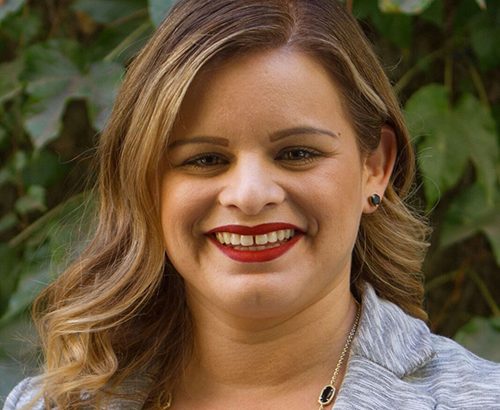
Audri Gomez, Ph.D. Meet the new Associate Director at the Thompson Policy Institute
October 24, 2017
Dr. Audri Gomez, the new Associate Director at TPI, sits down with us so we can learn more about her experience, research interests, and family life. Please read and share this interview. Welcome, Dr. Gomez!
Prior to joining TPI, tell us about your experience in the education system.
My career in education began as a K-6 Special Education Teacher, prior to going into administration as a Special Education Coordinator. During my time as an administrator, I was in the Ph.D. program at Chapman University and became aware of the Thompson Policy Institute and their critical and influential research. I knew I wanted to become part of this dynamic team working with the staff and faculty of the Thompson Policy Institute on Disability and Autism and the Attallah College of Educational Studies, conducting cutting-edge and innovative research that informed policy in education. My expertise within the public education system as a teacher and administrator provides me with first-hand knowledge and experience to conduct necessary, imminent research that could inform policy. I am honored to be a part of the Thompson Policy Institute to continue their efforts to improve educational programming and impact policy.
During your years as a teacher, and then a special education administrator, what issues did you find most pressing?
As a major proponent of inclusive education, I was always perplexed about the difficulties of inclusion in public schools. As a dichotomous educational system, we frame our practices in two distinct systems, general education and special education. This designation begins within our credentialing system where we provide two educational programs for prospective teachers. The ethos, with two distinct programs, sends a message that certain teachers can only educate certain students. The idea of inclusion needs to begin within higher education where prospective educators learn how to educate students with a range of academic needs. Too often we allow the labels placed on children to identify who we are as educators and who we can and cannot teach.
Secondly, the amount of litigation occurring in schools today is extensive. The IEP process can become so compliance-driven that we lose sight of who the IEP is for and what the IEP is all about. Litigation is a pressing issue that needs to be addressed within schools to maintain compliance, but also to develop a flexible approach where families and school staff can collectively explore decisions made for the benefit of students with disabilities.
What are your current research interests?
My primary research interest aligns with one of the Thompson Policy’s Institute’s primary focus, which is inclusive education. Specifically, my interest on inclusion focuses on the construction of school culture from a Disability Studies framework and developing sustainable practices for teachers by building their capacity through professional development. Part of my role as Associate Director at the Thompson Policy Institute will be in developing partnerships with local school districts and charter schools to improve educational practices by bridging the gap from research to action as well as informing educational policy.
Tell us about a current project you are working on at TPI.
I am currently working on understanding the landscape of charter schools, specifically within Orange County and across the state of California. With current enrollment of over 600,000 students in charter schools, California has become the highest state with the number of charter schools and charter schools students in the country. We need to understand the educational practices occurring in charter schools for students with mild, moderate, and severe disabilities because of the overwhelming and increasing enrollment in charter schools.
Secondly, we are always listening to the community through our Action initiatives. More and more, we are seeing and hearing both the pros and cons of the increased use of Applied Behavioral Analysis (ABA), which is an area of interest that I will begin to be researching.
Tell me more about you, Audri.
I am am mother of 4 girls ages 14, 12, 6, and 4. When I am not running around with them to the softball field, art or piano classes, you can find me on the softball field. I have played co-ed softball for many years. I also enjoy lifting weights (PR 225lb dead lift) and just recently completed my first Spartan race. As a daughter of parents who grew up in Los Angeles, I am a dedicated Dodgers fan. Go Blue!